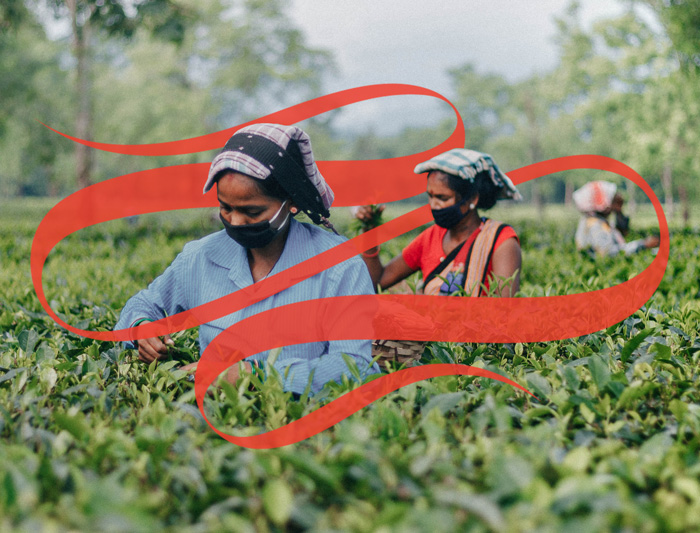
There is little doubt that the COVID-19 crisis and its aftermath will bring changes to the labor market and its functioning, as well as how people live and work. The pandemic, with its simultaneous disruptions to labor supply and demand, has been a “perfect storm”. On the supply side, infections reduce labour supply and productivity, while lockdowns, business closures and social distancing also cause supply disruptions. On the demand side, layoffs and the loss of income and worsened economic prospects reduce household consumption and firms’ investment. Patterns of demand have changed too as people stopped consuming things that would expose them to risks such as travel, entertainment, and culture.
Developing countries, due to their economic structure, healthcare systems and state capacity, face formidable challenges to respond to the crisis. The high prevalence of informality and employment in small firms in these countries also implies higher vulnerability to the economic effects of the crisis, in particular the risk of immediate income and job losses. The potential for recurrent spikes is also high in developing countries reflecting the differential ability of governments to vaccinate populations and to avoid or manage liquidity crises. As a result, the pandemic is estimated to have erased at least 10 years of per capita income gains in more than a quarter of developing countries in 2020.
Women, young people and informal workers have been disproportionally affected by the Covid disruption. Women are overrepresented in the informal sector; in personal services jobs that cannot easily move online; and in “front line” jobs that expose them to a higher risk of contagion, such as health and education. There are also impacts linked to intra-household relationships. Youth, already facing higher rates of unemployment and underemployment, are highly vulnerable to falling labor demand. Informal workers (self-employed or wage workers) have their jobs and businesses concentrated in sectors that are strongly affected by lockdowns. They also have low access to social protection and income support.
The Economic Impact of COVID-19 and the State of Global Poverty
We sit down with the Global Director of the Poverty and Equity Global Practice, Carolina Sánchez-Páramo, to discuss the state of poverty in 2021, inequality of opportunity, the role of women in development, who is shouldering the economic impact of the pandemic, and more.
Many of the trends that are impacting labor markets were already in motion long before the onset of the COVID-19 crisis, though, and some stem from failed policy responses. These trends, linked to technological progress and the changing patterns of consumer demand, included: the rapid reshaping of skills demand (increasing premia for higher-order cognitive and socio-emotional skills and adaptability); the disruption of production processes and industrial organization due to digitalization (changing technologies and increasing importance of digital platforms); and changes in employment relationships (including the emergence of the “gig economy” in the OECD).
These challenges were extensively discussed in the WDR 2019 on “The Changing Nature of Work”. In response, that report highlighted the need to: intensify human capital investments and develop “21st century skills” to enable workers to participate on favorable terms in changing labor markets; to universalize access to social protection programs; and to ramp up the capacity of the global fiscal system to mobilize the necessary resources.
Many of these pre-existing trends have accelerated during the pandemic, and some are expected to have persistent effects for firms, workers and consumers in a post-crisis scenario. For example, the shifts in business models to give a higher priority to investments in automation in rich countries (reshoring), the shifts in the mix of skills required to succeed in the labor market (possibly with an increased demand for digital skills), or the share of workers who work partly or primarily from home that is substantially greater than it was pre-crisis.
Particularly, the Covid-19 triggered acceleration of automation trends raises concerns. One of them is that the comparative cost advantage of developing countries in global supply chains could be eroded, and this could result in more and more re-shoring of production and jobs to advanced countries. The acceleration in automation also implies a higher demand for automation-complementing skills. These can be digital skills and non-automatable skills. Unless poorly educated workers are able to attain the skills to engage with technology, the risk of worse job outcomes for them will weight heavier post-pandemic.

Yet, the pandemic also brings an opportunity to “build back better”. For example, the boost in digital adoption could be leveraged in developing countries and the reach and use of digital technologies broadened—especially among smaller and harder-to-reach firms—to reduce uncertainty and pave the way to a stronger, productivity-driven recovery. The crisis has also shifted the willingness of governments to address climate change. Climate action packages can deliver the much-needed jobs if public policy supports the expansion of jobs which are both greener and better.
Yet, to “build back better”, policy responses to the pandemic should addresses some of the pre-Covid changes while strengthening resilience and inclusivity in the labour market. This may include investments in sustainable infrastructure, including digital ones, which will be key for a strong economic recovery and creating jobs. Education policies are needed to address the learning crisis and meet future skill needs, particularly for youth and women. Public policy also needs to support the expansion of jobs which are both greener and better. To make green jobs feasible and facilitate the transition to a green economy, the availability of workers and firms with the required skills will be critical.
Strengthening taxation systems to create more fiscal space is much needed too, especially in developing countries. Many countries are providing sizable fiscal support through budgetary measures, as well as monetary liquidity (IMF, 2020). In developing countries, these measures have come on top of an already fragile fiscal situation as the past decade has seen “the largest, fastest, and most broad-based increase in debt in these economies in the past 50 years” (IMF, 2020; Kose et al. 2020).
Boost revenue mobilization in a way that is both inclusive and growth friendly is imperative. Green stimulus policies, for example, often have advantages over traditional fiscal stimulus; renewable energy investments and green infrastructure projects deliver high multipliers and job creation in the short run. Governments may also want to revisit financing arrangements for social protection, to reduce their dependence on labor taxes collected by formal firms and reduce the related “tax wedge”, which generates disincentives to the growth of formal sector jobs. They may shift, instead, towards using general taxation based on (more easily observable) sales transactions.
The challenges ahead leave little room for complacency: more than six hundred million people will be looking for jobs over the next decade, especially in developing countries. The Covid-19 crisis could be used as an opportunity to reshape the policy landscape to support the expansion of jobs which are both greener and better. This calls for significant financial resources at a time when exceptional crisis-related expenditure needs leave most developing countries with limited choices and difficult policy tradeoffs.


